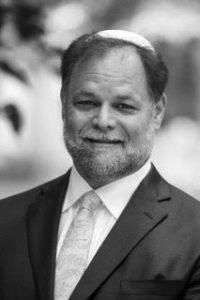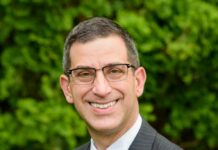
Rabbi David Levin
Parshat Miketz
Endings are more than conclusions; endings are also beginnings. As one thing concludes, another starts, based on what preceded. When making a decision, we cannot know everything that will follow.
However, that journey naturally follows from the choice we make. Different decisions lead to different outcomes. How do we determine the right decision? Parshat Miketz asks us to think more deeply about this and to see decisions not with finality but as the beginning of something new.
Miketz means “the end,” and our parsha is so named with the word taken from the opening sentence: It came to pass at the end of two full years that Pharaoh was dreaming … Pharaoh could continue to ignore his dreams or seek to understand them. Pharaoh decided to do the latter. But that is not the end of the story, but rather an introduction to what follows.
Three other “ending/beginnings” in this parsha are:
Interpreting dreams led to Joseph’s freedom.
Famine led to the family meeting Joseph.
Joseph’s deception fosters mature leadership blossoming in Judah.
As the great American philosopher Yogi Berra once shared, when you come to a fork in the road, take it.
Any decision considers immediate concerns, but broader, grander and arguably more profound considerations exist. In the moment, the right moral and ethical choice can be challenging to discern. We are often tempted to respond based on our short-term interests or as reactions to things done to us, sometimes hurtful or insensitive.
It is precisely then that we need to find our character and integrity, seeing our actions’ greater good and longer-term consequences. We must resist the temptation to respond in kind because “an eye for an eye” is only fitting, or since they hurt us, we are not bound by proper behavior and can now do as we please. This action can foreclose opportunities that exist at this moment of decision-making. In Miketz, the results of different, more selfish decisions would have profound consequences.
If Joseph had not shared his gift of dream interpretation with others, his reputation would never have been known to Pharoah. Had Jacob selfishly squandered remaining provisions, the brothers would never have met Joseph, the Egyptian vizier. Judah could have permitted Benjamin to remain hostage without regard to his father’s feelings, but those actions would have made the subsequent unfolding of our history impossible. Joseph would have died in prison, the clan would have starved and Joseph would not have seen the humanity in Judah and welcomed peace with his brothers.
Peace sometimes seems elusive, if not impossible, but somehow we must.
In the current state of war, it is hard to envision what tomorrow looks like. But what we do today determines tomorrow. Can we act with perspective and the wisdom that opens the door to the reality we hope for? Even though there is no guarantee things will pan out as we hope, we can assure ourselves of failure if we do not try.
At this moment, when things are most difficult and the path forward so precarious, the decisions made now could not be more critical. The war will end but, like Miketz, the war’s end is also a new beginning.
Tomorrow does not happen in a vacuum. It is based on the choices we make today. What is our vision for our future, and what can we do to help that unfold?
Each moment is potentially a moment of sacred transformation — a point in time that will substantively determine how the future unfolds. Or it may be nothing special at all. This inability to know how things will develop makes it incumbent upon us to treat each moment with reverence.
Because we cannot know what will be, we must do our best all along the way. It raises the bar and elevates us to consider our actions and how profound our decisions can be. We are not only at the end but also the beginning.
Rabbi David Levin is the founding director of Jewish Relationships Initiative, a nonprofit focused on outreach and end-of-life challenges. He is also the interim rabbi at Temple Judea of Bucks County. The Board of Rabbis of Greater Philadelphia is proud to provide diverse perspectives on Torah commentary for the Jewish Exponent. The opinions expressed in this column are the author’s own and do not necessarily reflect the view of the Board of Rabbis.





